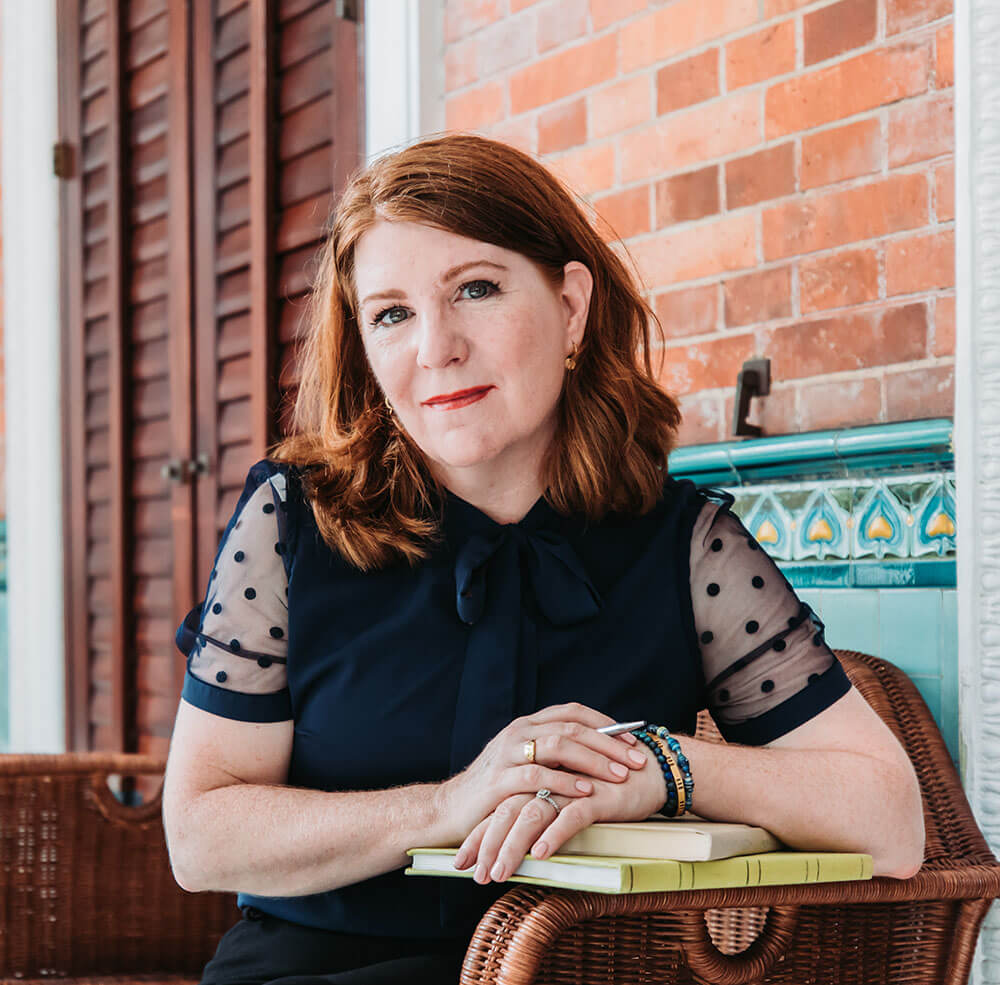 We all hoped, even expected, that some version of normal-ish life would resume by the time kids were back in school this fall. But, clearly, COVID is still here and we need to find a fall rhythm that includes things like online learning, very limited (or non-existent) social activities, and zoom calls out the wazoo. (I’m pretty certain ‘wazoo’ is a legit medical term). But how on earth are we going to survive this fall ‘at home’, with COVID, and with our family mental health intact?
We all hoped, even expected, that some version of normal-ish life would resume by the time kids were back in school this fall. But, clearly, COVID is still here and we need to find a fall rhythm that includes things like online learning, very limited (or non-existent) social activities, and zoom calls out the wazoo. (I’m pretty certain ‘wazoo’ is a legit medical term). But how on earth are we going to survive this fall ‘at home’, with COVID, and with our family mental health intact?
I don’t know about you, but I’m about tapped out on the fun meter. I was okay to muscle through the spring. (what I consider the pajama days, work-on-projects, and enjoy family time portion of this stupid [and horrible] pandemic). And despite an ongoing sense of depression and boredom mixed with anxiety and ennui, we made it through the summer. And all the ambiguous losses that kept coming.
But that’s because I thought fall was gonna be the re-start. Fall was kinda the finish line of the on-going, ever-present shifts in the new new normal.
And yet, here we still.freaking.are. And, brace yourself, are likely to be (at least in some version) for the next two years.
(I am so sad. I had such high hopes for 2021.)
But in the spirit of thriving not killing each other, how do we anchor ourselves and our families, so we aren’t just tossed about by every new *new* thing we have to adjust to?
Researchers say our surge capacity is depleted—we can maintain a certain ability to adapt and pivot for awhile, but we have to adjust our strategy for the longer term if we want to maintain our mental health in these ‘unprecedented times’ and the ‘new normal’.
(I could be very happy if I never heard those terms again. Le sigh.)
How do we help ourselves, our families and our children get through this longer-term experience with the ever-present COVID with all our mental health intact?
[Note: Many of us are dealing with the weird anxiety/depression/boredom mix that seems to be a pandemic special. But if you are in a funk that you cannot get out of, consider that you might need some support. I beg you to check-in with a friend, pastor, counselor, therapist or doctor to give you a little boost out. Hugs.]
2020 is not a throw away year. We cannot just wait for this to pass. We have to decide how we are going to live through it.
How do we climb out of survival mode and find a sustainable rhythm that feels on purpose and healthy for ourselves and our family? This is how. In the midst of an ever-changing world with an uncertain future, this is how we get back to some mental health:
WE ARE GOING TO GET INTENTIONAL with our COVID-existing lives and also SET SOME ROUTINES.
11 helpful ideas for family mental health during COVID (part 1, #1-5)
(You can check out part 2 here, 11 helpful ideas for family mental health during COVID, part 2 #6-11.)
1. A plan for the day and a calendar to prove it
A schedule helps the family know what’s coming in the day and it can relieve a lot of anxiety for everyone (including kids). Our lives used to have a routine and a certain flow each day and that is WILDLY interrupted right now. We do better when we all know what’s happening in the day, and when. A few things that have helped our family thrive not kill each other:
a) We use a shared Google Calendar to put anything that impacts the family on it.
We’ve been in the habit of it for years, but even when we aren’t doing much outside the home right now, knowing when someone will be using the garage to practice music helps us all respect each other’s space and time a bit. And putting it on the calendar keeps us accountable (which is why I have family workout time on there—everyone sees it and knows it’s coming). So put those important phone calls or tests or project due dates where everyone can see them and be aware of each other’s needs.
b) If you have younger kids, a daily family calendar written on a whiteboard or chalkboard is a helpful visual. Even if your older kids have a school planner, knowing what the family day looks like will help them feel more centered about their day. When the world feels like a giant mess of uncertainty, knowing what time dinner is feels surprisingly calming.
(And knowing WHAT’S for dinner each night reduces anxiety for everyone. For simple tips on how to quickly create a weekly menu, check out this helpful resource.)
2. Daily family check-in so we aren’t jerks to each other.
We do a very brief family check-in, ideally before everyone goes to bed or first thing in the morning.
Since we are all in each other’s space all.the.time it helps to know what people’s days look like so you can support/stay out of the way for things like tests or important zoom calls. Also, while we’ve mostly solved the bandwidth problems at this point, you don’t want to plan a facetime hangout with a friend or have your teen be streaming that anime show during someone’s Very Important meeting. Things are hard enough without additional technology frustrations that make people swear-y.
Need some ideas and tips for getting your WFH / mental health / how to survive a pandemic life in order? Check out this comprehensive list of ideas and tools that Morning Brew put together in the early days of the pandemic.
3. If you are a parent or caregiver, take shifts.
I got this idea from my brilliant friend, Evy. Her work has been on hold for a large portion of the pandemic and her hubby is usually the at-home parent. With both of them home with their two kids, they were each hands-on parenting all.the.time. She had the great idea of taking shifts so her and her hubby could both have a chunk of the day to themselves. This is such a great way to care for the mental health of the whole family.
Each day, both parents have a chunk of time to work on a project or watch tv or do whatever they want or need to do. Knowing they would have some personal time each day really made them more present when they were on duty. Also, you can see how a daily family schedule helps this work. (If you are parenting solo, consider who is in your quarantine pod that you could do a version of this with. Even an older kid can help for a bit.)
We adopted a modified way to do this and I have to tell you, my resentment level for always being the available adult because Darling Hubby is working from home definitely decreased.
What can you do to share the household/parenting workload?
Find a way to break up the daily responsibilities. This is hard on everyone. No one person in the family needs to be the martyr (ahem, resentful martyrdom is usually how I do it, but you do you). You are (literally) all in this together. So everyone can bear some of the burden. These are ‘unprecedented times’, remember? Time for some ‘unprecedented’ growth for everyone in the family. *grin*
4. Give each other space. Mental and literal.
While together time is nice and I am definitely grateful for the time our family has had to all be in the same geography after living on different continents for the past year, a little space
helps to maintain everyone’s mental health. Absence really does make the heart grow fonder. Even if that absence means that someone went to the patio for a few hours.
I noticed that Pixie was staying up really late and sleeping in. At first, I didn’t mind. But I finally had had enough of her not being available until noon each day and I was a little worried she was depressed. So, I had a chat with her about how she needed to use her time better, blah blah blah (as moms do). She very maturely told me that she was used to having the house to herself all day. (Back when her sister and I were on set and her dad was at work.) Having us all home all the time was kinda stressful (she’s my fellow introvert). The hours after we had all gone to bed were important for her mental health.
Smart kid.
I get up early most days to get some work done before the day (meaning the people) starts. I get up extra early on Sundays to take an hours long bath (with treats) before anyone needs me for anything. Ahhhh.
Have younger kids?
Even little kids can benefit from some alone time, especially if they don’t nap anymore. When my girls were toddlers, we instituted ‘rest time’ when they gave up their nap. It might take a little training, but it is so worth it for your kids to build up this ability to be by themselves. (Personal growth for everyone!) My girls still remember it fondly—it was a nice break for them AND me. They stayed in their room, safely playing or reading for an hour, no electronics. (I started them on just on their bed when they were very little and likely still a hazard to themselves.)
5. End the day.

Working from home kinda sucks. Schooling from home kinda sucks. In part, because we can always do it—it’s right there all the time. Work/life balance, my butt. So, declare an end time. We intentionally do this each evening when we shift to ‘family time’. Once dinnertime hits, we all know that it’s time to set work and school aside. Sure, there are occasional exceptions. But most evenings we wrap up our separate activities and come together to hangout and relax. Everyone knows and expects this shift and it helps us to not always be in work mode.
Life feels very uncertain and out-of-control right now because it is. But, in fairness to the pandemic, it always has been. We just had some nice structure so the chaos felt like an interruption verses what our whole life felt like. Gaining a little control over the things you can will definitely help your family emerge from this crisis with a bit more mental resilience.
Looking for ways to break up the monotony of this COVID life and have something to look forward too? Check out: 11 helpful ideas for family mental health in COVID (part 2, #6-11).





